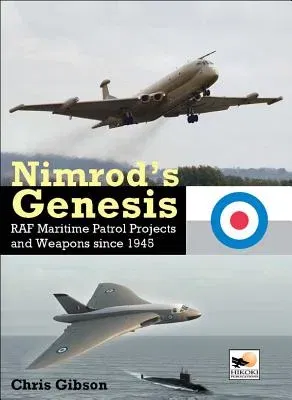Chris Gibson
(Author)Nimrod's Genesis: RAF Maritime Patrol Projects and Weapons Since 1945Hardcover, 15 June 2015

Qty
1
Turbo
Ships in 2 - 3 days
Only 5 left
Free Delivery
Cash on Delivery
15 Days
Free Returns
Secure Checkout

Part of Series
Hikoki
Print Length
224 pages
Language
English
Publisher
Hikoki Publications
Date Published
15 Jun 2015
ISBN-10
1902109473
ISBN-13
9781902109473
Description
Product Details
Author:
Book Format:
Hardcover
Country of Origin:
CN
Date Published:
15 June 2015
Dimensions:
29.72 x
21.08 x
2.54 cm
ISBN-10:
1902109473
ISBN-13:
9781902109473
Language:
English
Location:
Ottringham
Pages:
224
Publisher:
Series:
Weight:
1202.02 gm